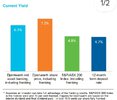wayneL
VIVA LA LIBERTAD, CARAJO!
- Joined
- 9 July 2004
- Posts
- 26,087
- Reactions
- 13,526
Disclaimer: I am not an options guru, in fact I have been accused of using long words to sound like I know what I'm talking about (but obviously don't in the mind of the troll) but I have taken the time to educate myself about options over a very long time and so therefore freely offer what I do know, for whatever that's worth. I always stand to be corrected... And I admit to a penchant for sesquipedalianism, guilty, whatevah!!!
It's not the most popular topic here on ASF, many contributors disappearing into the ether. But there are some great contributors who are obviously well educated, Duc, Sharkman and others whom I apologise for not naming... It's that time of night where I am three sheets to the wind and the mycotoxicity is definitely having an effect on my memory for names. Lol
But, can we have a discussion on how to use options in our trading accounts, for actually benefit.
I have my ideas, but others have great (and probably better) ideas.
Lobbing an easy serve for discussion...
It's not the most popular topic here on ASF, many contributors disappearing into the ether. But there are some great contributors who are obviously well educated, Duc, Sharkman and others whom I apologise for not naming... It's that time of night where I am three sheets to the wind and the mycotoxicity is definitely having an effect on my memory for names. Lol
But, can we have a discussion on how to use options in our trading accounts, for actually benefit.
I have my ideas, but others have great (and probably better) ideas.
Lobbing an easy serve for discussion...

